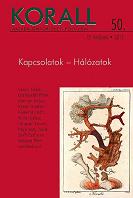A város mint földesúr. Kassa es falvai a jobbágyfelszabadítás előtti években
The Town as Landowner: Kassa (Košice) and its Villages before the Emancipation of Serfs
Author(s): Gábor CzochSubject(s): History
Published by: KORALL Társadalomtörténeti Egyesület
Summary/Abstract: This study of the relationship between village and town analyses a unique historical situation whereby the town acted as the overlord of the villages, rather than simply being a market outlet or information hub for them. In this function, the town played an integral role in various aspects of the peasants’ day-to-day life: acted as judge, collected taxes, regulated the use of forests, controlled the mill, alcohol sales, the abattoir, and was the patron of the parish priest as well. The case study examines Kassa (presently Kosice, Slovakia’s second largest city), which was one of the most important regional centres in the Kingdom of Hungary in the first half of the nineteenth century. In the 1840s, due to the privileges as chartered town, as well as other royal grants, Kassa was entitled to hold seventeen villages and a market town. The study examines the economic impact of owning lands and the everyday relations between the town as landowner and its villages before the 1848 Revolution and its aftermath abolished this form of feudal co-dependence. The analysis suggests that although the town generated significantly more revenues from financial transactions (investment and loans) than from its villages, this income was far from insignificant. Judging by the villagers’ legal cases presented to the council, the town can be characterised as a strict and consistent, but not tyrannical overlord. The town’s relationship with its villages can be seen as patriarchal: villages were not considered merely as a source of income, but were also recipients of support and care. While villagers were keen to find loopholes in the system and circumvent feudal control, they were also acutely aware of their dependency on the town as their overlord.
Journal: Korall - Társadalomtörténeti folyóirat
- Issue Year: 2012
- Issue No: 50
- Page Range: 63-81
- Page Count: 19
- Language: Hungarian

